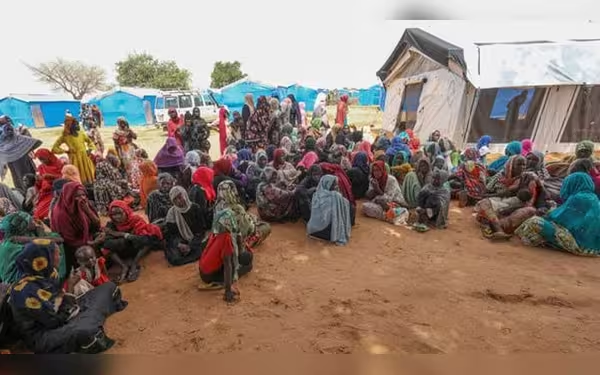Saturday, November 16, 2024 07:44 PM
World Bank Report: 26 Poorest Countries Face Unprecedented Debt Crisis
- 26 poorest countries in worst financial shape since 2006.
- High debt levels threaten economic stability and recovery.
- Climate change exacerbates vulnerabilities in struggling nations.
 Image Credits: thenews.com.pk
Image Credits: thenews.com.pkWorld Bank reveals 26 poorest countries face unprecedented debt levels, raising concerns over economic stability and climate vulnerabilities.
In a recent report released by the World Bank, it has been highlighted that the world’s 26 poorest countries are facing unprecedented financial challenges. These nations, which are home to approximately 40% of the globe's most impoverished individuals, are now more in debt than they have been since 2006. This alarming situation not only underscores the dire economic conditions these countries are grappling with but also raises concerns about their vulnerability to natural disasters and other economic shocks.
The report indicates that the International Development Association (IDA), which typically receives replenishments every three years from World Bank member countries, is crucial for providing financial support to these struggling nations. However, the increasing debt levels suggest that the assistance may not be sufficient to address the growing needs of these countries.
Many of these nations are already facing the brunt of climate change, with natural disasters becoming more frequent and severe. This makes their economic situation even more precarious. For instance, countries that rely heavily on agriculture are particularly at risk, as erratic weather patterns can devastate crops and livelihoods. The combination of high debt and environmental vulnerability creates a perfect storm that could lead to further economic decline.
Moreover, the report sheds light on the fact that the financial struggles of these countries are not just a local issue; they have global implications. As these nations struggle to recover from debt and disasters, the ripple effects can be felt worldwide, impacting trade, migration, and international stability.
The findings of the World Bank report serve as a wake-up call for the international community. It is imperative that more robust measures are taken to support these countries in overcoming their financial challenges. By investing in sustainable development and disaster resilience, we can help lift these nations out of poverty and create a more stable and prosperous world for everyone. The time to act is now, as the future of millions hangs in the balance.













